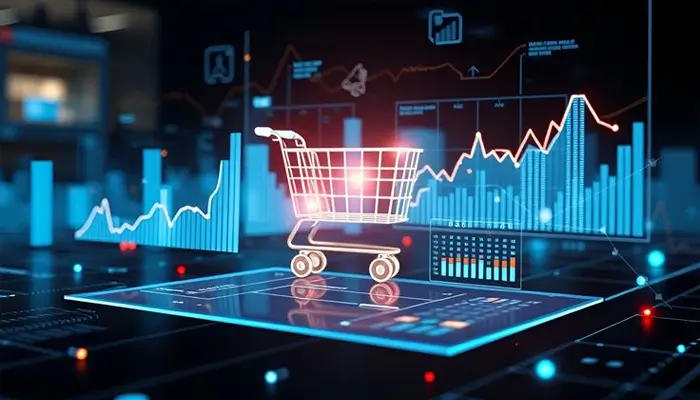
How to Secure Your WordPress Website Against Hacks and Malware (2025 Guide)
August 29, 2025
AI-Powered Video Editing: How Creatives Can Automate Editing Without Losing Style
September 4, 2025E-commerce has grown rapidly over the past decade, but in 2025, Artificial Intelligence (AI) is taking online shopping to a whole new level. From personalized product recommendations to smarter inventory management, AI is helping businesses not only attract customers but also increase sales, boost retention and streamline operations.
Here’s how AI is shaping the future of e-commerce in 2025.
-
Personalized Shopping Experiences
Customers expect brands to understand their needs. AI-driven algorithms analyses browsing behaviour, purchase history and demographic data to recommend products that customers are more likely to buy.
- Amazon and Shopify stores use AI to suggest products in real time.
- AI-powered recommendation engines can increase sales by up to 30%, according to McKinsey.
This personalization builds stronger customer relationships while increasing conversion rates.
-
Smarter Chatbots and Virtual Assistants
Gone are the days of clunky chatbots. In 2025, AI-powered chatbots like Tidio, Intercom and Drift provide 24/7 customer support with natural, human-like conversations.
- They answer product questions instantly.
- They guide customers through checkout.
- They even upsell and cross-sell relevant items.
These tools improve customer satisfaction while reducing the workload for sales teams.
-
Dynamic Pricing for Higher Profits
AI allows businesses to adjust pricing in real time based on demand, competition and inventory. For example:
- Airlines and hotel platforms already use AI-powered dynamic pricing.
- E-commerce stores are following suit, ensuring competitive yet profitable prices.
This keeps businesses agile in fast-changing markets.
-
Smarter Inventory and Supply Chain Management
One of the biggest challenges in e-commerce is stock management. AI tools now forecast which products will sell best, reducing overstocking and out-of-stock issues.
- AI predicts seasonal demand.
- Automates restocking processes.
- Suggests optimal shipping routes to reduce costs.
This efficiency improves both customer satisfaction and profit margins.

-
Visual Search and AI-Driven Discovery
Shoppers can now upload an image and instantly find similar products using AI-powered visual search tools like Google Lens or Pinterest Lens.
For fashion, furniture and home décor brands, visual search creates a seamless shopping experience that drives engagement and sales.
-
Fraud Detection and Secure Payments
AI plays a critical role in detecting unusual payment activity and preventing fraud. Platforms like PayPal and Stripe use AI algorithms to flag suspicious transactions in real time, protecting both businesses and customers.
Conclusion
In 2025, AI isn’t just a “nice-to-have” for e-commerce, it’s a must-have competitive advantage. From personalized shopping journeys to dynamic pricing and smarter customer service, AI is helping online stores become smarter, faster and more profitable.
For freelancers, agencies and small businesses, adopting AI-driven tools can level the playing field against larger competitors and unlock new growth opportunities.
If you have any questions regarding “AI is Transforming E-Commerce” feel free to contact us. For inquiries and consultations, call us at: +92 321 4808303 or Email us at: hello@owaisgilani.com.
Disclaimer: The information shared on this website is for educational and informational purposes only and reflects my personal views and experiences. While I strive to provide accurate and helpful content, readers should use their own judgment and consult with a qualified professional before making any decisions based on the information here. I am not responsible for any actions taken based on this content. Feel free to reach out to me if you need clarification or have questions before using any part of this information.



